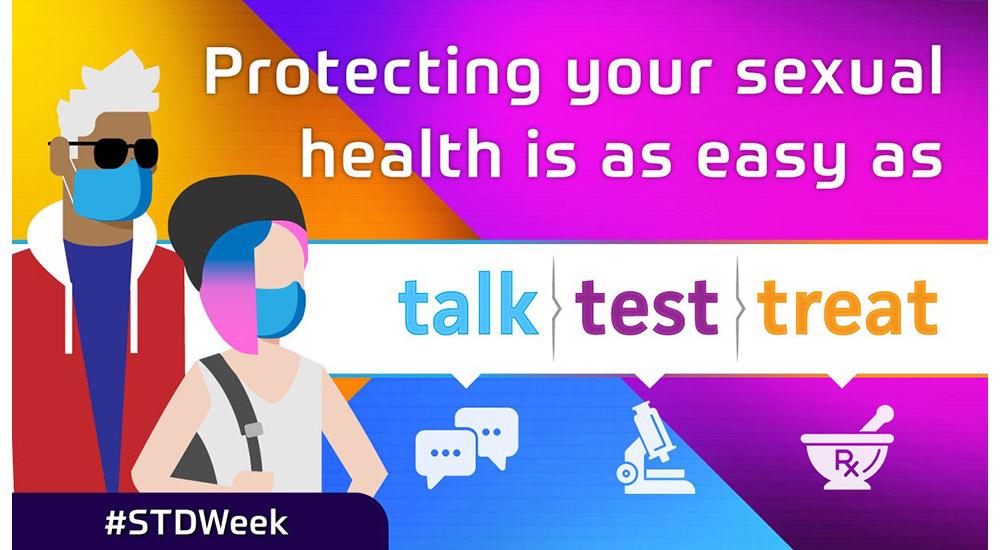Did you know that sexually transmitted infections (STIs) like gonorrhea, chlamydia and syphilis are at an all-time high? If left untreated, these STIs can cause:
- Increased risk of giving or getting HIV.
- Long-term pelvic and/or abdominal pain.
- Inability to get pregnant or lead to pregnancy complications.
STIs affect people of all ages, yet these infections take a particularly heavy toll on young people. STIs are also called sexually transmitted diseases (STDs). If you are sexually active, there are a few things you need to know.
First, STIs are preventable. You can lower your risk by using condoms and latex barriers during sex (oral, vaginal, and anal). Your VA provider can prescribe condoms if you need them. There is also a daily medication called Pre-Exposure Prophylaxis or PrEP that is very effective at preventing HIV, another STI. PrEP is available at VA.
Tests are quick and simple, usually painless
Second, STI tests are quick, simple and usually painless. Talk to your partners about when you were last tested. Open communication is essential to protecting your health!
Finally, talk to your provider about your sexual health. Your provider can provide information and resources on prevention, and they can let you know which screening tests you should have and how often.
Don’t assume you have been tested for STIs – ask at your next appointment.
Which STI tests should I get?
- All adults should be tested at least once for HIV.
- All sexually active women younger than 25 years should be tested for gonorrhea and chlamydia every year. Women 25 years and older with risk factors, such as new or multiple sex partners, or a sex partner who has an STD, also should be tested for gonorrhea and chlamydia every year.
- All pregnant women should be tested for syphilis, HIV and hepatitis B starting early in pregnancy. At-risk pregnant women also should be tested for chlamydia and gonorrhea starting early in pregnancy.
- All sexually active men who have sex with men should be tested at least once a year for syphilis, chlamydia, gonorrhea, hepatitis C and HIV. Those who have multiple or anonymous partners should be tested more frequently for STDs (at 3- to 6-month intervals).
- Anyone who has unprotected sex or shares injection drug equipment should get tested for HIV at least once a year.
This week is STI awareness week, the perfect time to get in touch with your provider and talk about what tests you might need. Learn more about STIs and testing for these infections: https://www.hiv.va.gov/sti-awareness-week.asp.
Elizabeth Maguire is the communications lead for the HIV, Hepatitis, and Related Conditions Program Office.
Topics in this story
More Stories
Combat Veteran faces the traumatic events of her PTSD during prolonged exposure therapy and looks forward to the days to come.
Bob Jesse Award celebrates the achievements of a VA employee and a team or department that exemplifies innovative practices within VA.
The Medical Foster Home program offers Veterans an alternative to nursing homes.







